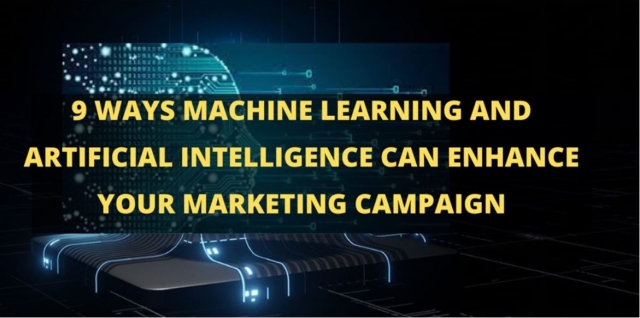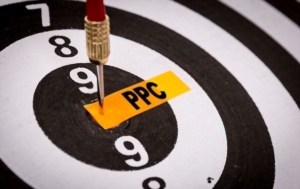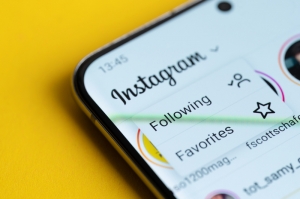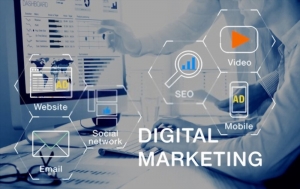You lose the competitive advantage if you are not using cutting-edge AI-powered solutions in your marketing. AI algorithms are always at work behind the scenes of well-known goods and services like Netflix, Amazon, and, of course, Google.
But during the last few years, AI has forged a deeper path into marketing, aiding firms in improving each stage of the consumer journey.
Additionally, medium- and small-sized firms can now buy and utilize ML and AI solutions. Machine learning is essentially rewriting the norms of successful marketing.
It can be used for digital advertising and email marketing. It can also be used for social media marketing to content development.
9 Ways That Artificial Intelligence and Machine-Learning Can Improve Your Marketing Campaign
1. Improved PPC Marketing Campaigns
Pay-per-click (PPC) is an internet marketing strategy where advertisers are charged a fee each time one of their adverts is clicked. It’s a technique for purchasing visitors to your website rather than seeking to "earn" those visitors naturally.
Since Google madesome AI model upgrades to Google Ads, PPC advertising has expanded in scope and complexity. AI helps marketers maximize the return on their PPC investment. It does this by providing predicted click-through rates and ad rotation optimization.
Smart bidding is one technique that uses machine learning to increase the profitability of your PPC campaigns. This method makes your bidding more targeted by combining ML and contextual cues. This helps to optimize your bids and leverages billions of data points to assess the chance of conversions:
Machine learning has limitless potential for improving PPC campaigns. It provides the following functionalities to PPC marketing campaigns.
- Analyze campaigns at the level of search queries as opposed to keywords.
- Examine search circumstances to determine how likely conversions are to occur.
- Find inexpensive, low-competition keywords with respectable monthly traffic quantities.
- Take user search behavior into account when determining bids.
- Combine data from many sources, such as location and device, to improve your bids.
2. Customer Engagement and Churn Prediction
Churn prediction enabled by AI keeps more of your customers engaged. AI increases lifetime value and marketing revenues when combined with targeted content production.
Disengaged consumer segments poised to depart or switch to a rival can be found using machine learning techniques.
ML-powered solutions can assist with data collection and the creation of predictive models. These models can be stored in a model registry after training. Machine learning operations also help monitor the model after training. Then the model can be tested and validated on actual clients. That information may reveal the client's current stage of churning.
The ML model can send consumers relevant offers, push notifications, and emails to keep them interested. It does this if it sees churn-indicating behaviors like decreasing usage time.
Churn prediction is specific to every product and business. Hence the machine-learning algorithms must be modified or created from scratch for your business. With such knowledge, you may produce content that engages consumers more effectively.
3. Customer Insights
AI can provide customer insights needed for marketing. In contrast, it would take humans a long time to digest all the facts and correlate them to customer behavior patterns.
You can deploy ml mode build client personas using billions of data points, such as on-site interactions. Because of this, machine learning algorithms can perform the following:
- Identify which customer segments should be included and excluded from campaigns.
- Improved consumer matching to the goods they most likely use and maintain.
- Prevent promoting limited stock to customers who will unavoidably return items.
4. Image recognition to capture customer details
Major firms use AI Image recognition like Amazon to recognize individuals and objects in pictures and videos.
Several businesses use facial recognition software to track in-store customer visits and connect these videos to their customers' profiles.
Using AI image recognition, stores can provide personalized welcome greetings, and real-time discount offers to visitors.
Customizing the content experience for visitors to your store now has a significant new dimension. This is due to data collected through in-store facial recognition. You can build and send even more focused one-on-one messaging by knowing how the person shops.
5. Personalization
Marketers are using machine learning to create a better consumer experience at scale. One of the most well-known instances is Netflix.
Based on what the viewer has previously seen, ignored, and rated, they employ ML to offer content they believe they would most likely like. Marketers can use Netflix's ML approach to improve and personalize marketing campaigns.
6. Curating Precise Marketing Content
You know how time-consuming it can be if your content staff curates posts to create roundups or other "best of" material. Fortunately, there are solutions for content curation that use machine learning. These solutions enable the timely delivery of the appropriate content to the appropriate audience.
These tools compile content from popular websites (blogs, social media platforms, etc.) and tailor the content experience for your clients.
7. Social Media Engagement
The new center of gravity for all digital marketing is social media marketing. Many essential marketing tasks are now carried out via Facebook, Instagram, Twitter, and YouTube. Machine learning enables marketers to harness the power of big data to maximize their social media resources.
The various ways that ML is reimagining social media and transforming it into a powerful marketing platform are as follows:
- Reputation management: It's crucial to handle user reviews and complaints on social media. This will contribute to building a solid brand image. ML may assist marketers in identifying which user reviews and complaints to address first.
- Social listening: Using machine learning, terabytes of data can be analyzed. This will help to learn how audiences interact with various content types and themes.
- Better Data Segmentation: Using Natural Language Processing (NLP), ML algorithms assist in clustering an enormous variety of data. These algorithms give profound insights into user demographics, preferences, and activities through sophisticated data segmentation.
8. Provides Optimized Advertising
For digital marketers, advertising is a considerable expense. Traditional advertising optimization relies on manual judgments. Manual judgment like how to select an advertisement channel, how much advertising space should I buy?
This process's efficiency is limited by human thought and computation abilities. Your current marketing initiatives can perform better if you use machine learning to its full potential.
For instance, by utilizing AI, marketers can contact potential clients who have characteristics with your current clients. Furthermore, machine learning can help maximize conversions, saving you time and increasing your ROI.
9. Provides Automated Email Marketing
Marketers constantly search for email marketing automation tools to increase their ROI. Utilizing complex customer segmentation and personas may be done with the aid of ML-powered email marketing. These make their email marketing hyper-personal.
Here are four specific ways machine learning aids marketers in enhancing the efficiency of email campaigns:
- Creating customized topic lines and messaging for content to encourage user involvement (what to send).
- Data segmentation: Establishing guidelines for emailing prospects (whom to send to).
- Timing: Select the ideal moment to email prospects based on their previous answers (when to send).
- Email delivery: enhancing the sending domain's standing to ensure timely email delivery (how to send).
Conclusion
The wasting of human brain power on pointless tasks has been replaced by machine learning. In essence, this means that marketers utilize ML to enhance and automate their marketing initiatives. Use machine learning in all your marketing endeavors; it's the future.






